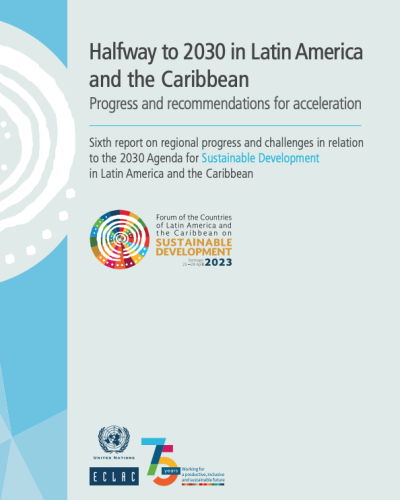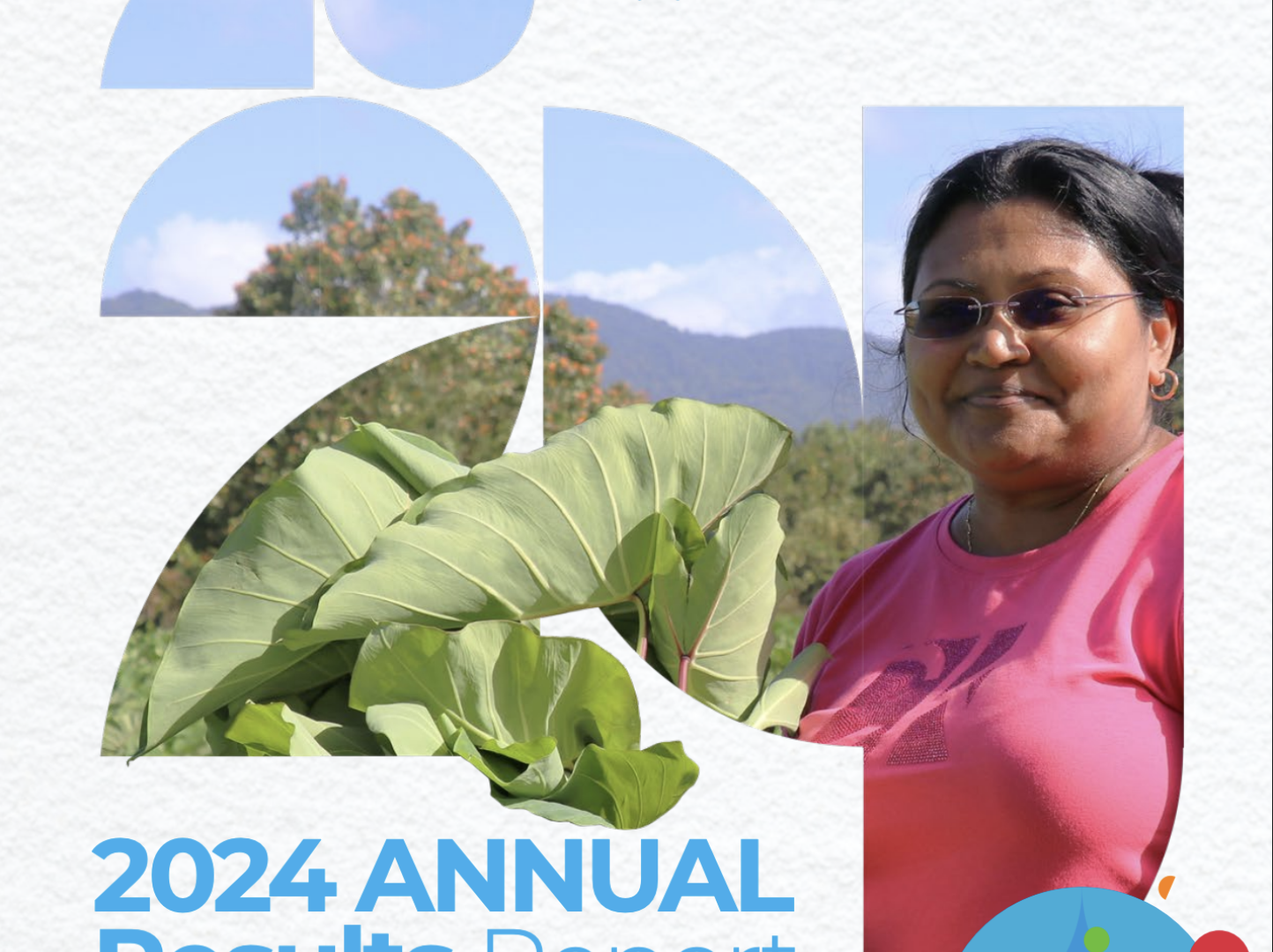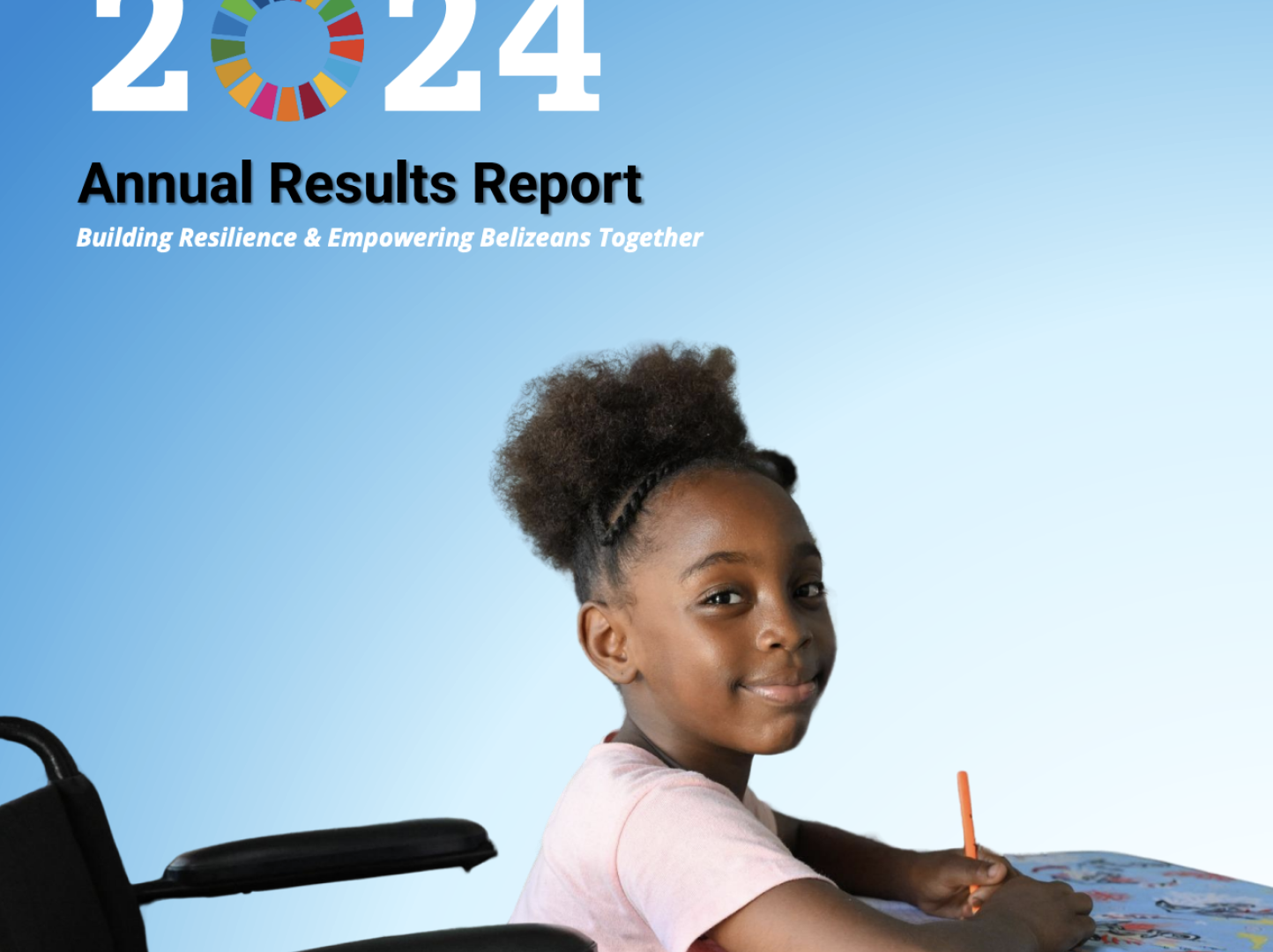Halfway to 2030 in Latin America and the Caribbean: Progress and recommendations for acceleration

This report looks at three key issues — First, it reviews overall progress towards the achievement of all the Sustainable Development Goals (SDGs), with a more in-depth focus on progress towards five of them: clean water and sanitation (Goal 6); affordable and clean energy (Goal 7); industry, innovation and infrastructure (Goal 9); sustainable cities and communities (Goal 11); and partnerships for the goals (Goal 17). Given the worrying trend towards backsliding in some indicators and targets, immediate action will be needed to incentivise investment, strengthen institutions and related governance, and mobiliSe joint efforts and shared commitments, engaging the public and private sectors and civil society.
Second, it posits that getting back on track to meet the SDG targets by 2030 requires not only greater investment and financing but also a paradigm shift in public policymaking. Specifically, there is a need to improve governance, shore up institutions and partnerships, and envisage longer time horizons in public policy. The vision for society set forth in the 2030 Agenda calls for the design of forward-looking public policies that bring together all social actors to build desirable scenarios for the future, as well as the road maps and processes for dialogue and participation required to achieve them. The scale of the challenges facing the countries of Latin America and the Caribbean is such that it necessitates dialogue and decisions that are not limited to the short-term, and in this sense, the SDGs can be of great help in articulating and shaping a shared vision of the future.
Third, the report analyses the institutional processes that have been put in place for the implementation and monitoring of the SDGs. It describes how countries have linked their development plans and planning processes to the SDGs, and how they continue to actively participate in voluntary national 10 Economic Commission for Latin America and the Caribbean (ECLAC) reviews to assess and improve policies. It also highlights the growing interest in carrying out actions to implement the 2030 Agenda at the subnational level and illustrates how voluntary local reviews have emerged as a means for subnational stakeholders to support the implementation and monitoring of the SDGs. Equally important to note is the active engagement of civil society and its establishment of internal mechanisms as well as partnerships with governments to proactively monitor and advocate for progress on the SDGs in a positive and constructive manner.




















